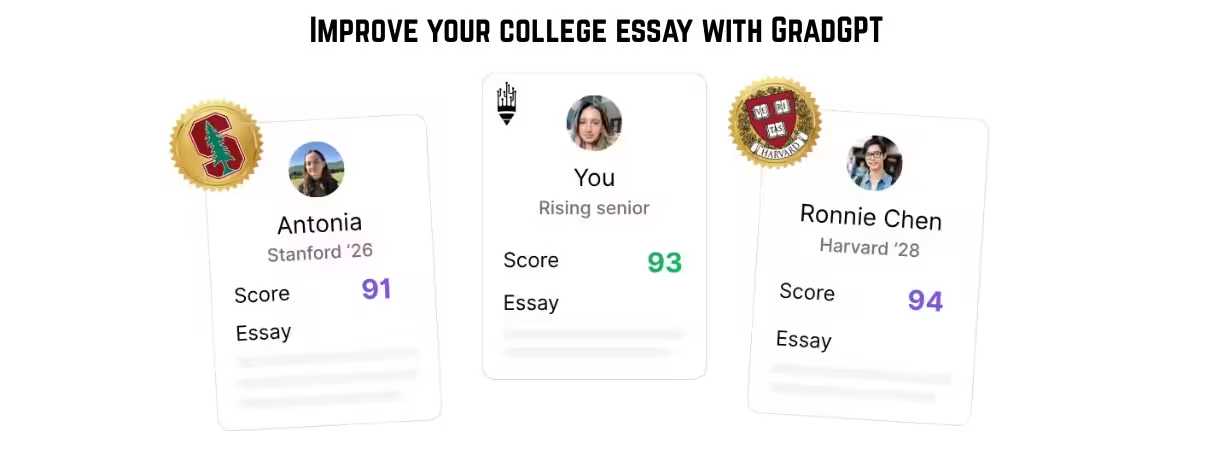Analyzing Harvard essays that worked is not about finding a formula; it's about understanding a mindset. A winning essay is a portrait of a mind in action. This guide deconstructs the core qualities of essays that earn admission to the highest level.
Q: What is Harvard really looking for?
A: They want to see your mind at work. Your essay must reveal your unique way of thinking, not just your list of achievements.
- Generic: Stating a passion like, "I love science."
- Effective: Showing how a failed experiment revealed your true passion for the scientific process itself.
Q: How to show intellectual vitality?
A: Prove you're an active thinker, not just a good student. It's about connecting ideas and exploring the "why" behind your interests.
- Connect seemingly unrelated subjects to show creativity.
- Describe the journey of your interest, including your questions.
- Highlight learning you've pursued on your own time.
Q: How to write with an authentic voice?
A: Write with genuine self-awareness. Authenticity comes from honest reflection, not from trying to sound impressive.
- Admit a moment of uncertainty or a flaw, then show growth.
- Use a small, personal story to reveal a larger truth about you.
- Write with intelligence, but keep your language clear and natural.
Q: What narrative structures stand out?
A: Choose a structure that serves a clear purpose. It should help tell the story of your intellectual or personal growth.
- The Unifying Thread: Connect two different interests to reveal a unique worldview.
- Zoom In, Zoom Out: Start with a tiny detail to explore a much larger idea.
- The Intellectual Pivot: Focus on one moment that changed how you think.
<>
Understanding the theory is the first step. The next is execution. Here are the practical strategies for crafting your own standout essay and proving you belong at Harvard.
Q: How do I choose the right topic?
A: The topic is just a vehicle for self-reflection. Don't choose what you think Harvard wants. Choose a story only you can tell.
- A small moment of real transformation is better than a grand, impersonal achievement.
- Focus on an experience that created tension or forced you to grow.
- The best topics reveal curiosity, resilience, or empathy.
Q: What writing techniques are effective?
A: Precision, clarity, and reflection are your main tools. Make your thinking process visible on the page.
- Use precise verbs and concrete images. Show, don't just tell.
- Employ metaphors that reveal how you think.
- After every anecdote, answer the silent "So what?" question. How did it change you?
Q: How do I prove I am a "Harvard fit"?
A: You show it, you don't say it. Your fit is proven by aligning your actions with Harvard's values of curiosity, leadership, and service.
- Name a specific professor or program that is essential to your goals.
- Show you're a community builder by describing a tangible impact you've made.
- Let the essay's intellectual depth be the ultimate proof of your readiness.
Q: What are the biggest red flags?
A: Admissions officers spot inauthenticity and ineffective essay types instantly. Avoid these common traps.
- The Accomplishment List: Your resume in paragraph form.
- The Hero Narrative: A cliché story of you saving the day.
- The Abstract Philosopher: Using big words to say very little.
- The Sob Story: Focusing on hardship without showing resilience and growth.
<>
Your unique story and perspective are your greatest assets. Use these principles to write an essay that is authentic, compelling, and impossible to forget. When your draft is ready, having a professional college essay editor provide a final review can ensure your story shines.
